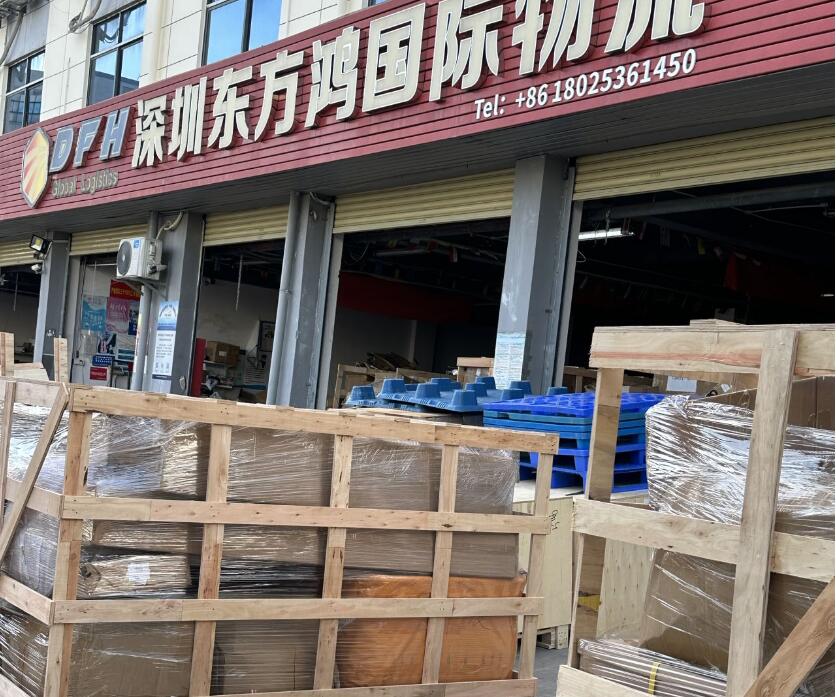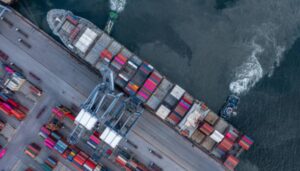If you’re buying from Alibaba and need to ship your goods to the UK, you’re probably facing several questions:
Which shipping method should you choose? How do you avoid customs issues? Can you import as an individual without a VAT number?
I’m the co-founder of DFH Logistics, a freight forwarding company based in China. Over the past 12 years, I’ve helped thousands of clients—from Amazon sellers and wholesalers to individual buyers—ship goods smoothly from Alibaba to the UK. In this article, I’ll walk you through everything you need to know to ship from Alibaba to the UK safely, affordably, and with confidence.
Whether you’re ordering a single product or managing a supply chain for your e-commerce store, this is your go-to guide.
Why buy from Alibaba and ship to the UK?

Alibaba connects UK buyers with hundreds of thousands of Chinese manufacturers and wholesalers offering competitive prices, flexible MOQs, and a wide range of products. But buying is just half the story—shipping the goods from China to the UK requires proper planning, compliance, and logistics support.
Many UK-based importers choose Alibaba for:
- Lower sourcing costs compared to local suppliers
- Wide product selection across all industries
- Direct access to factory pricing
- Custom branding and OEM options for e-commerce businesses
But if you’re not familiar with the shipping process, it’s easy to make mistakes that lead to delays, unexpected charges, or even failed deliveries. That’s why understanding your logistics options is just as important as choosing the right supplier.
How does shipping work on Alibaba?
On Alibaba, most sellers offer shipping in two ways:
- Seller-arranged shipping (they quote and arrange freight)
- Buyer-arranged shipping (you use your own freight forwarder)
If you’re a first-time buyer, seller-arranged shipping might seem easier—but it often results in higher costs, longer delivery times, and limited tracking. Sellers usually prioritize convenience and use default courier services without optimizing for your specific needs.
Here’s how it typically works:
- You confirm the order with the supplier.
- You choose between EXW, FOB, or DDP shipping terms.
- If the seller handles shipping, they quote you a bundled price.
- If you use your own freight forwarder, they coordinate pickup and export from the supplier’s warehouse.
For better control, transparency, and cost efficiency—especially if you’re shipping bulk or need customs support—it’s highly recommended to work with a trusted China-based freight forwarder who understands the UK import process.
At DFH, we regularly coordinate with Alibaba sellers to handle pickup, consolidation, export declaration, shipping, customs clearance, and final-mile delivery to UK addresses or Amazon FBA warehouses.
Should you let your Alibaba supplier handle the shipping?
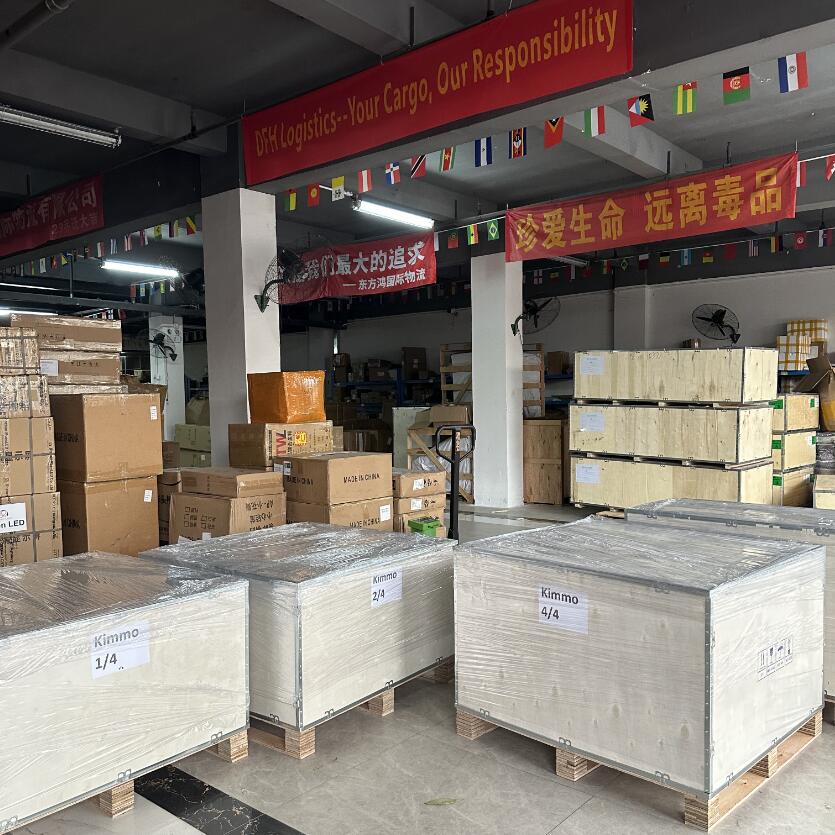
While it may seem convenient to let your Alibaba supplier handle the shipping, this decision often comes with trade-offs. Suppliers on Alibaba are manufacturers—not logistics experts. Their goal is to complete the sale, not necessarily to optimize your freight route, reduce shipping cost, or solve customs challenges in the UK.
Let’s compare both options:
| Factor | Alibaba Supplier Shipping | Using Your Own Freight Forwarder |
|---|---|---|
| Price Transparency | Often unclear or marked up | Transparent cost breakdown |
| Shipping Method Choices | Limited | Flexible: express, air, sea, DDP, etc. |
| Customs Clearance Support | Usually none | Full support, including VAT/DUTY issues |
| Cargo Consolidation | Not offered | Offered (ideal for multiple suppliers) |
| Tracking and Updates | Minimal | Full shipment visibility |
If you’re buying small samples or one-off items under 20 kg, supplier shipping might be fine. But for bulk orders, high-value goods, or shipments requiring special handling (e.g. Amazon prep, DDP, or personal delivery), it’s far safer and more cost-effective to use a freight forwarder who acts in your best interest.
What are the shipping methods from Alibaba to the UK?
There are five main ways to ship goods from Alibaba to the UK. The best option depends on your cargo size, weight, delivery timeline, and import status.
1.Express
Courier (DHL, FedEx, UPS)
- Transit Time: 3–7 days
- Best For: Small parcels, samples, urgent orders
- Notes: Expensive per kg; import VAT/Duty is often charged on delivery
2.Air Freight
(Airport to Airport or DDP Air)
- Transit Time: 7–12 days
- Best For: 100–500 kg shipments needing faster delivery
- Notes: More affordable than express; requires customs clearance unless DDP used
3. Sea Freight
– LCL (Less than Container Load)
- Transit Time: 30–45 days
- Best For: 1–15 CBM of cargo; non-urgent, bulky, or heavy shipments
- Notes: Lower cost per CBM; ideal for mixed cargo; may require port pickup or use of DDP
4. Sea Freight – FCL (Full Container Load)
- Transit Time: 28–40 days
- Best For: Shipments over 15–20 CBM
- Notes: Exclusive use of container; lower unit cost; good for branded goods, large orders
5. DDP (Delivered Duty Paid) Shipping
- Transit Time: 8–12 days by air or 45-50 days by sea)
- Best For: Buyers without EORI or VAT number; personal shipments; Amazon FBA.small businessies.Company wants hands free shipping solution.
- Notes: Includes customs clearance, VAT/DUTY payment, and UK delivery
Each method has its advantages. At DFH Logistics, we help our UK clients select the most suitable channel based on delivery needs, customs profile, and budget—often combining air or sea with DDP to simplify compliance.
What is DDP shipping from Alibaba to the UK?
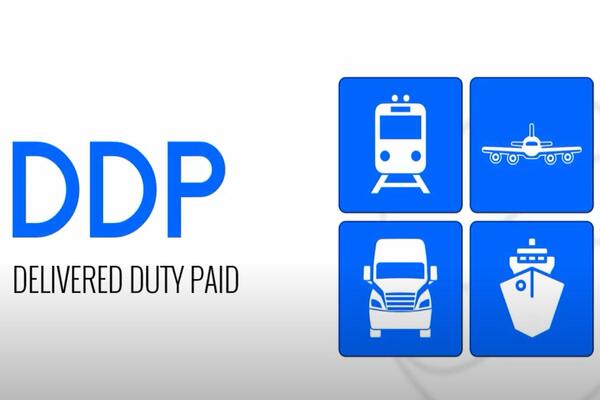
DDP stands for Delivered Duty Paid—a shipping method where all responsibilities, taxes, and customs clearance processes are handled by the shipper. This means the goods are delivered to your UK address fully cleared, with no surprise charges at the door.
For many importers, especially individuals or e-commerce sellers without a VAT or EORI number, DDP is the most convenient and hassle-free way to import from Alibaba.
Key features of DDP shipping:
- Door-to-door delivery (from Chinese supplier to your UK address)
- Customs clearance included
- Import VAT and duties prepaid by the forwarder
- No need for import license, EORI, or VAT registration
- Available for both air freight and sea freight
When to use DDP:
- You’re a personal buyer or startup without VAT/EORI
- You’re shipping to Amazon FBA and want predictable delivery
- You want to avoid customs paperwork or delays
- You need fixed, all-inclusive pricing
At DFH Logistics, we offer reliable DDP air and sea freight solutions from China to the UK. Our clients trust us to manage the entire process, from pickup and export declaration to customs clearance and final-mile delivery.
How much does it cost to ship from Alibaba to the UK?
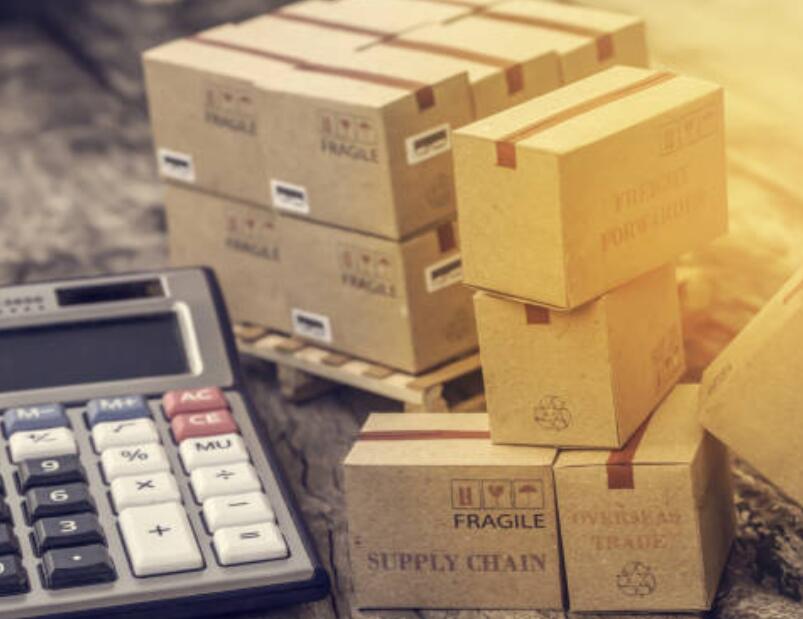
Shipping cost depends on several factors, including:
- Shipping method (express, air, sea, DDP)
- Cargo weight and volume
- Pickup location and UK delivery address
- Urgency of delivery
- Value and type of goods (affects VAT and duty)
Here’s a general pricing guide (for reference only):
| Shipping Method | Transit Time | Estimated Cost (per kg/CBM) | Suitable For |
|---|---|---|---|
| Express Courier | 3–7 days | $8–$15/kg | Samples, small urgent goods |
| Air Freight | 2–5 days | $4–$8/kg | Light cargo, faster delivery |
| Air Freight (DDP) | 8–15 days | $6–$10/kg (all-in) | No VAT/EORI, simplified import |
| Sea Freight (LCL) | 30–35 days | $40–$80/CBM | Larger or bulky goods |
| Sea Freight (DDP LCL) | 35–50 days | $150–$250/CBM (all-in) | Cost-efficient & hands-off |
| Sea Freight (FCL 20GP) | 28–40 days | $1,500–$4,200/container | Full container loads |
Additional costs to be aware of:
- Customs duties and VAT (unless using DDP)
- Origin charges in China (packing, documents, port fees)
- UK local delivery (if not included in base quote)
- Optional services: warehousing, repacking, labeling, inspection
We always recommend getting a custom quote based on your shipment details. At DFH, we provide all-in DDP quotes with no hidden fees, so you know exactly what to expect before you ship.
What is the cheapest way to ship from Alibaba to the UK?
The cheapest way to ship from Alibaba to the UK depends on the size, weight, and urgency of your goods. In general, sea freight LCL (less than container load) or DDP sea shipping is the most economical choice for larger, non-urgent shipments.
Here’s how to optimize for cost:
1. Use LCL sea freight if your cargo is over 1 CBM
- Ideal for medium-to-large shipments
- Slower but much cheaper than air or express
- Best if your delivery timeline is flexible
2. Choose DDP sea shipping if you don’t want to deal with customs
- All-inclusive price: freight, clearance, VAT, duty, and delivery
- No need to pay additional fees upon arrival
- Great for personal buyers or first-time importers
3. Consolidate goods from multiple suppliers
- If you’re buying from more than one seller on Alibaba, ask your freight forwarder to consolidate shipments at a local warehouse in China
- This helps you save on export costs and reduce volume-based pricing
4. Avoid shipping during peak season
- Avoid September–January (Golden Week + holiday season), when rates spike
- Book early or ship off-peak to reduce freight costs
5. Work with a freight forwarder, not your supplier
- Suppliers often bundle in shipping at a premium price
- Freight forwarders can compare options and negotiate better rates on your behalf
At DFH Logistics, we provide flexible solutions for small, medium, and large shipments. Our DDP sea freight options to the UK are especially popular among cost-conscious clients.
Do you need an EORI or VAT number to import from Alibaba to UK?
Yes—and no. It depends on whether you’re importing as a business or as an individual, and whether you’re using DDP shipping or handling customs yourself.
If you are a registered UK business:
You’ll need the following:
EORI Number (Economic Operator Registration and Identification)
Required for customs clearance in the UK. You can apply for free via the HMRC website.VAT Number (optional but recommended)
Enables you to reclaim input VAT on your import costs.
If you are an individual:
You don’t need an EORI or VAT number if you use DDP shipping, where the freight forwarder handles all import requirements on your behalf.
However, if you use a standard courier or port-to-port service, customs will hold the shipment until you appoint a broker or pay VAT/DUTY yourself, which can delay delivery or lead to extra fees.
Practical advice:
- Use DDP shipping if you don’t want to register for EORI or manage customs paperwork.
- If you’re running a business and importing regularly, getting an EORI and VAT number is highly recommended.
How is UK customs clearance handled when shipping from Alibaba?
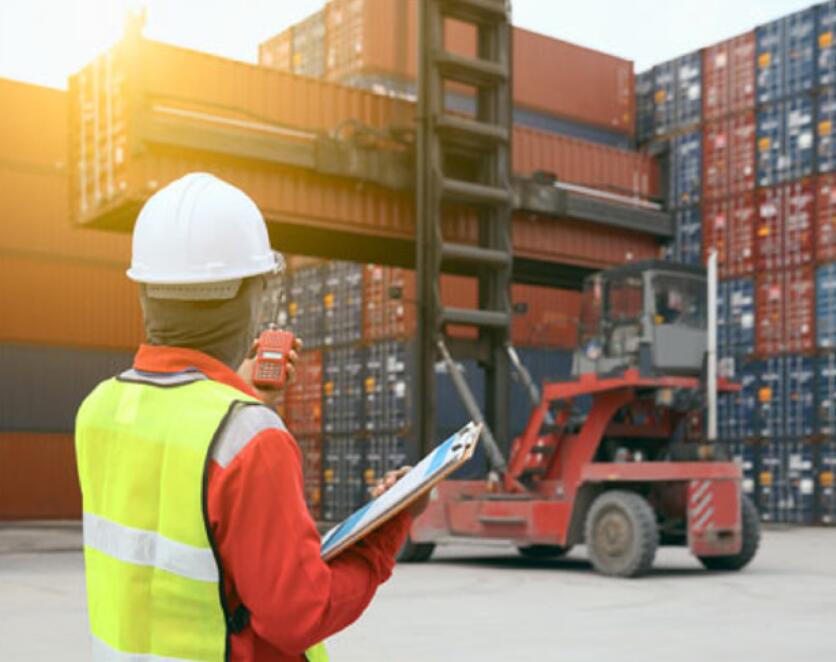
UK customs clearance is a required step for all goods imported from outside the UK—including items purchased from Alibaba. How this process is handled depends on your chosen shipping method.
If you’re using standard shipping (DDU, port-to-port):
- Your goods will arrive in the UK and be held at customs until the importer (you) or your appointed customs broker:
- Submits a customs declaration
- Pays any applicable import VAT and duties
- Provides your EORI number and business details
- This can cause delays and even storage charges if documents or payment are not submitted quickly.
If you’re using DDP shipping:
- Your freight forwarder handles the entire customs process for you:
- Submits the import declaration
- Pays import VAT and duties on your behalf
- Delivers goods directly to your address or fulfillment center
- You don’t need an EORI, VAT number, or customs knowledge
Common customs issues when importing from Alibaba:
- Undervaluation by the seller leading to shipment holds or fines
- Lack of documentation (invoice, HS codes, packing list)
- VAT unpaid on arrival causing unexpected charges
At DFH, we work closely with UK customs to ensure all declarations are compliant, accurate, and on time. We provide DDP shipping as a default for many Alibaba shipments to avoid customs delays and reduce stress for our clients.
Can individuals ship from Alibaba to the UK without a business license?
Yes, individuals in the UK can absolutely order from Alibaba and have products shipped to their door—even without a business license, EORI number, or VAT registration.
However, there are some important considerations:
1. Use DDP shipping to avoid customs complications
If you’re importing as a private person, you likely won’t want to handle:
- Customs declarations
- VAT payment
- Dealing with port authorities or bonded warehouses
DDP (Delivered Duty Paid) shipping solves this by:
- Including VAT/duty in the price
- Providing door-to-door delivery
- Ensuring no paperwork is required from you as the importer
2. Some sellers may not offer DDP
Not all Alibaba suppliers provide DDP services, especially for individuals. In this case, you should work with a third-party freight forwarder like DFH to arrange it.
3. There may be import limits
While there’s no strict import ban on personal shipments, UK customs may question frequent or high-value imports if they suspect commercial intent.
4. Track product types and regulations
Some products—like food, supplements, cosmetics, or electronics—may require special approvals or certifications, even for personal use.
Our team at DFH Logistics regularly helps UK individuals ship furniture, gifts, equipment, and custom goods from Alibaba with full DDP support. Whether you’re a casual buyer or starting a business, we can guide you through every step.
How should small businesses and startups import from Alibaba to UK?
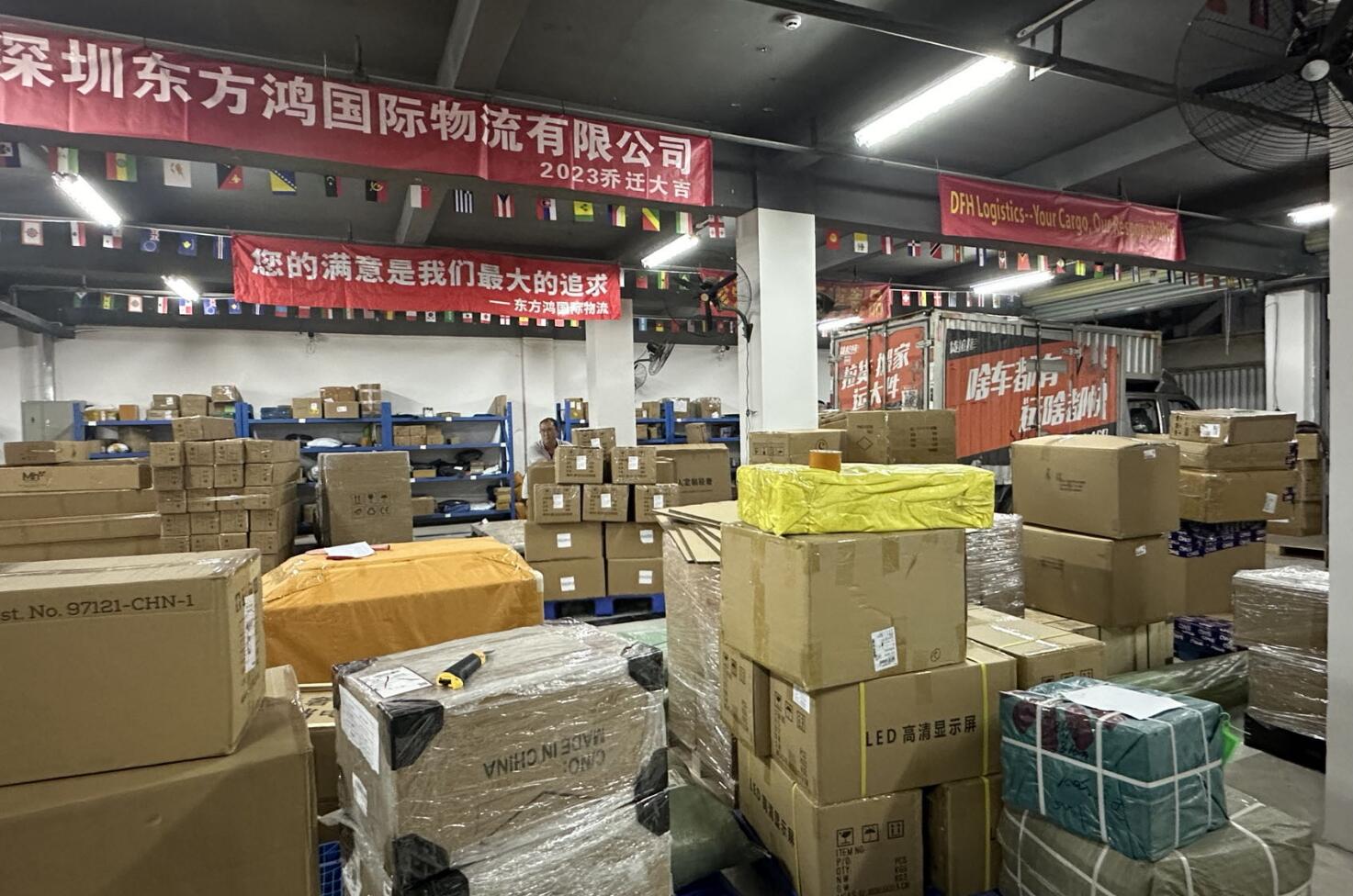
If you’re a UK startup or small business owner sourcing products from Alibaba, importing might feel overwhelming at first. The good news is: it’s entirely manageable—and scalable—with the right approach and partners.
Here’s a simple roadmap for first-time importers:
Step 1: Choose the right supplier
- Use Trade Assurance to protect your payment
- Verify the supplier’s experience with international exports
- Clarify product details, packaging, and lead time upfront
Step 2: Confirm Incoterms
Ask your supplier what trade term they use:
- EXW (you handle pickup/shipping)
- FOB (they deliver to port)
- DDP (they or your agent handle end-to-end delivery)
If you’re not familiar with customs clearance or don’t have a VAT number, choose DDP shipping through a freight forwarder to avoid surprises.
Step 3: Use a reliable freight forwarder
Rather than relying on the seller for shipping:
- Use a third-party freight forwarder (like DFH Logistics)
- We handle supplier coordination, export documentation, consolidation, and UK delivery
- You’ll get shipping choices, cost clarity, and ongoing updates
Step 4: Plan for future growth
- If you start with air freight for speed, shift to sea freight to reduce costs as volume grows
- Consider warehousing or fulfillment partners for inventory scaling
Starting small is okay. But to grow, you need logistics partners who can scale with you.
How to ship Alibaba orders directly to Amazon UK (FBA)?
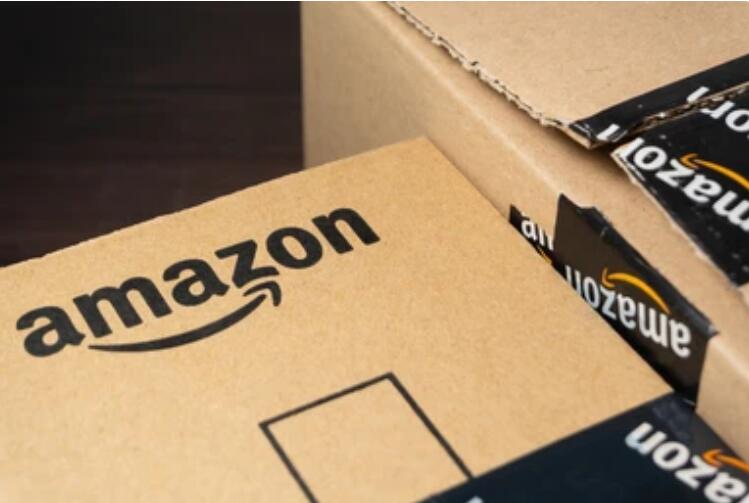
Many UK-based Amazon sellers source products from Alibaba, then ship them directly to Amazon FBA warehouses. This setup saves time and reduces handling costs—but it requires strict attention to compliance and prep.
Here’s how to do it right:
1. Get the correct FBA address from your Amazon Seller Central
- Choose "Send to Amazon" and generate the UK FBA warehouse destination
- Share the address and delivery instructions with your freight forwarder
2. Follow Amazon’s FBA shipping and labeling rules
- Label each unit with FNSKU or product barcode
- Label each carton with the correct FBA shipment ID
- Use compliant outer carton sizes and weights
If your suppliers can’t meet these requirements, DFH Logistics provides:
- Labeling and repacking services
- Carton consolidation from multiple suppliers
- Pre-inspection and damage checking before shipment
3. Use DDP shipping to FBA
- Amazon doesn’t act as the importer of record
- If you don’t have a VAT or EORI, DDP shipping is essential
- With DDP, we clear customs, pay VAT/duty, and deliver to the assigned FBA warehouse without delays
4. Book a delivery slot
- Amazon FBA warehouses require pre-booked delivery appointments
- We handle this as part of our service so your shipment is accepted without issue
Shipping directly from Alibaba to FBA UK is one of DFH’s core specialties. Whether by air or sea, we ensure compliance, smooth clearance, and on-time delivery to Amazon—so you can focus on sales, not logistics.
What products can you import from Alibaba to the UK?
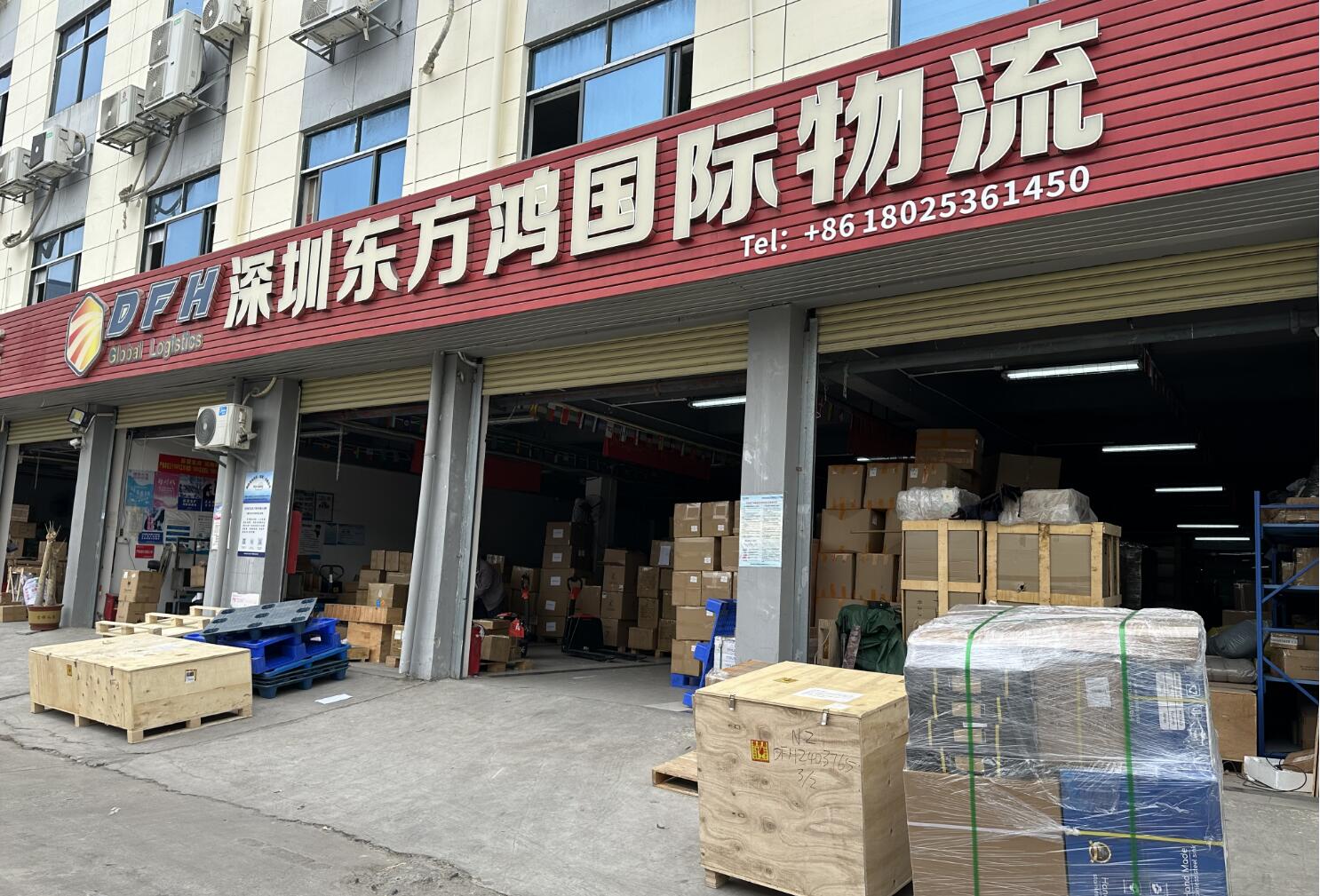
You can import a wide variety of products from Alibaba into the UK, but the type of product you’re buying will determine the shipping requirements, customs paperwork, and potential restrictions.
Products that are generally safe and common to import:
- Consumer electronics (e.g. LED lights, headphones)
- Home goods and furniture
- Textiles, clothing, and bags
- Phone accessories
- Toys (must meet UK safety standards)
- Stationery and office supplies
- Industrial parts and tools
- Kitchenware and cookware
For most of the above, shipping by DDP air or DDP sea freight is straightforward—especially when handled by an experienced freight forwarder.
Products that require special attention or approval:
Cosmetics and skincare
Must comply with UK Cosmetic Product Notification Portal (CPNP) rules and ingredient disclosures.Electrical devices
May require CE marking or UKCA certification to be legally sold or used in the UK.Food and dietary supplements
Subject to import control and may require prior notification, health certificates, or compliance with FSA (Food Standards Agency) regulations.Batteries and power banks
Classified as hazardous goods—must be declared correctly and shipped under special conditions.Medical devices or PPE
Must meet MHRA registration and other legal obligations.
Products that may be restricted or prohibited:
- Weapons or imitation weapons
- Certain agricultural products
- Products containing endangered animal parts (CITES)
- Items with counterfeit branding
How to check if your product is allowed:
- Refer to the UK government’s import list and commodity codes
- Ask your freight forwarder to confirm customs classification (HS code)
- Check labeling and compliance rules, especially for regulated products
At DFH Logistics, we help importers evaluate whether their products are compliant and recommend the best shipping method accordingly. Before shipping, we also verify labeling, packaging, and regulatory risks—so your shipment arrives safely and legally in the UK.
How do you ship from Alibaba to the UK step by step?
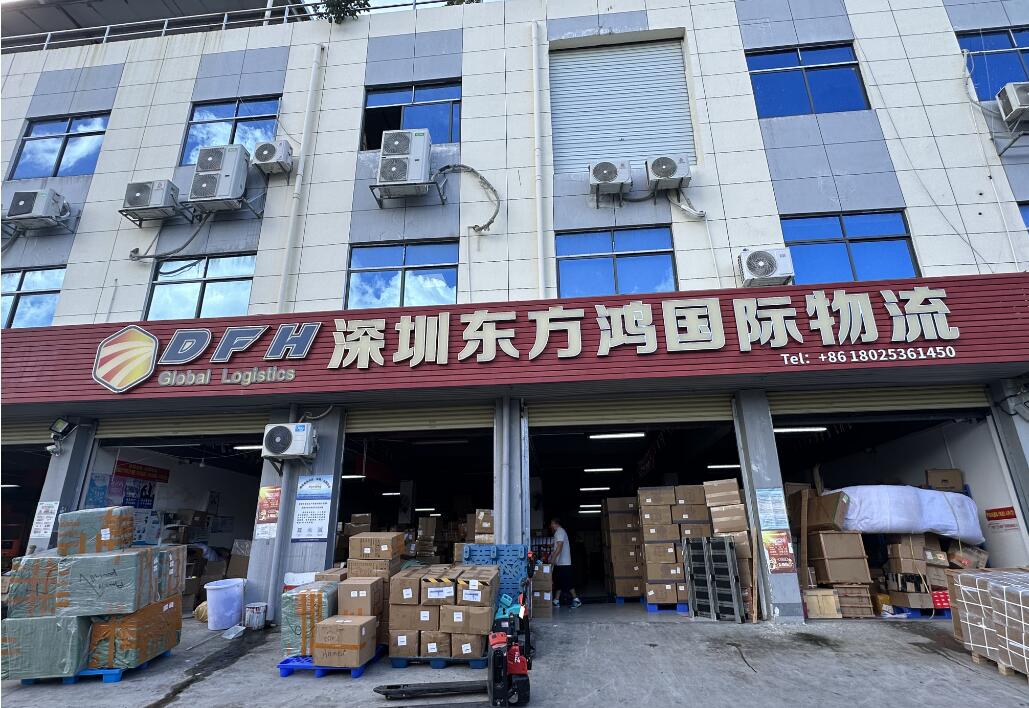
Shipping from Alibaba to the UK becomes much easier when you follow a clear process. Whether you’re a first-time buyer or managing ongoing shipments, here’s a practical workflow that minimizes mistakes and delays.
Step 1: Choose and confirm your supplier
- Verify supplier background, reviews, and export experience
- Confirm product specs, pricing, and lead time
- Decide on trade terms (EXW, FOB, DDP)
Step 2: Decide who will handle the shipping
- Option 1: Let the Alibaba supplier arrange shipping (limited control)
- Option 2: Appoint a freight forwarder like DFH Logistics to manage pickup, shipping, and customs
Step 3: Provide shipping information
- Your full delivery address
- If shipping to Amazon FBA: FBA warehouse address + shipment ID
- If shipping under your name: importer’s details (for non-DDP)
Step 4: Arrange cargo pickup or factory delivery
- EXW: Freight forwarder picks up goods from factory
- FOB: Supplier delivers goods to Chinese port
Step 5: Complete export procedures in China
- Supplier or forwarder prepares commercial invoice, packing list, and export customs declaration
- DFH can assist suppliers with no export license
Step 6: International shipping
- Goods are shipped via your chosen method (air, sea, or express)
- Transit time varies from 5 to 40 days depending on method
Step 7: Import clearance in the UK
- For DDP: DFH handles all paperwork and pays VAT/duties on your behalf
- For non-DDP: You or your broker must clear customs using EORI/VAT number
Step 8: Final-mile delivery
- Delivery to your door, warehouse, or Amazon FBA facility
- DFH can assist with booking Amazon delivery appointments, if needed
By following this workflow—and having a professional partner handle the logistics—you’ll avoid delays, extra fees, or missed documentation.
What documents are required to ship from Alibaba to the UK?
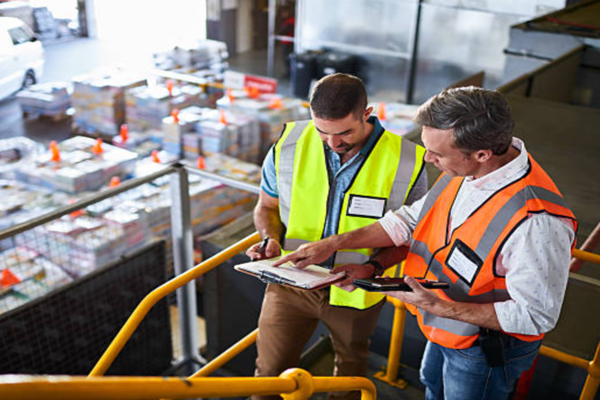
Accurate and complete documentation is essential for smooth export from China and import into the UK. Here’s what’s typically required:
1. Commercial Invoice
- Provided by the supplier
- Lists product details, unit price, quantity, total amount
- Used for customs valuation
2. Packing List
- Details weight, dimensions, number of cartons, packaging type
- Needed for both freight and customs processes
3. Bill of Lading (for sea freight) or Air Waybill (for air freight)
- Issued by the shipping carrier or freight forwarder
- Confirms receipt of cargo and transport route
- Required for releasing goods upon arrival
4. Export Customs Declaration (China)
- Filed by the supplier or freight agent before departure
- Mandatory for goods leaving China
5. Import Declaration (UK)
- Submitted to UK customs on arrival
- Required unless you use DDP and your agent handles it
Optional but useful documents:
- CE/UKCA certifications (for electronics, toys, machinery)
- Product photos or brochures (for inspection if requested)
- Test reports or MSDS (for regulated or hazardous goods)
At DFH, we prepare all necessary shipping documents for our clients—especially those using DDP. If your supplier is unsure how to prepare documentation, we step in to ensure your shipment clears customs without problems.
Why is Alibaba shipping so expensive to the UK sometimes?

Many buyers are shocked when they see shipping quotes on Alibaba—especially for heavier or bulkier products. But the high cost usually comes from factors that are easy to overlook.
Here’s what often drives the price up:
1. Sellers bundle shipping into product pricing
Some Alibaba suppliers offer “free shipping,” but this usually means they’ve embedded the freight cost into the unit price—often with a margin. You may end up overpaying compared to arranging your own logistics.
2. Using express couriers for heavy goods
DHL, FedEx, and UPS are fast—but expensive. If you’re shipping anything over 20–30 kg, using air or sea freight can cut your shipping cost by more than 50%.
3. No volume-based discounts
Suppliers sending out individual cartons may not get bulk discounts from couriers or airlines. Freight forwarders, on the other hand, ship large volumes daily and can pass on discounted rates to you.
4. Peak season surcharges
Shipping rates from China rise sharply during:
- September to January (Christmas season)
- Before Chinese New Year
- Global disruptions (e.g. fuel price hikes, COVID lockdowns)
Booking early or shipping off-season can reduce cost.
5. Paying twice for customs
If you’re not using DDP, you may end up paying VAT/duties upon delivery—even if you assumed they were already covered. This happens frequently with unclear Incoterms.
6. Poor route or carrier choices
Many suppliers are not logistics experts—they may select the easiest or fastest route, not the most economical one. A freight forwarder helps you compare options to fit your needs and budget.
At DFH Logistics, we audit your shipping plan to eliminate unnecessary charges, ensure proper routing, and match your delivery needs with the most cost-effective method available.
What are common mistakes when shipping from Alibaba to the UK?
Even experienced buyers can run into issues when importing from Alibaba. Knowing what to avoid can save you from delays, extra costs, or even confiscated goods.
1. Letting the supplier control everything
Relying entirely on the seller for shipping, documentation, or compliance leaves you exposed. Always confirm logistics terms and document requirements yourself—or use a trusted forwarder.
2. Not understanding Incoterms
Many buyers accept shipping terms like FOB, CIF, or EXW without knowing what they include or exclude. As a result, they may be responsible for unexpected port fees or customs delays.
3. Shipping high-volume goods via express
Courier costs increase rapidly with weight and volume. If your shipment is over 100 kg or more than 1 CBM, sea or air freight will save you money.
4. Ignoring import compliance
- Missing EORI number
- Incorrect or missing HS codes
- Unclear product labeling
These can trigger customs inspections or hold your goods at port.
5. Not consolidating multiple shipments
If you buy from several suppliers and ship each package separately, your total shipping cost will skyrocket. Consolidation services reduce freight charges and simplify customs clearance.
6. Using a forwarder with no UK clearance experience
UK customs procedures are strict. A China-based freight forwarder with no UK network may get the goods to port—but can’t help when they’re stuck in customs.
Avoiding these mistakes starts with working alongside a logistics partner who understands both sides of the supply chain. At DFH, we take proactive steps to prevent these issues from the moment your order is placed.
How can DFH Logistics help you ship from Alibaba to the UK?
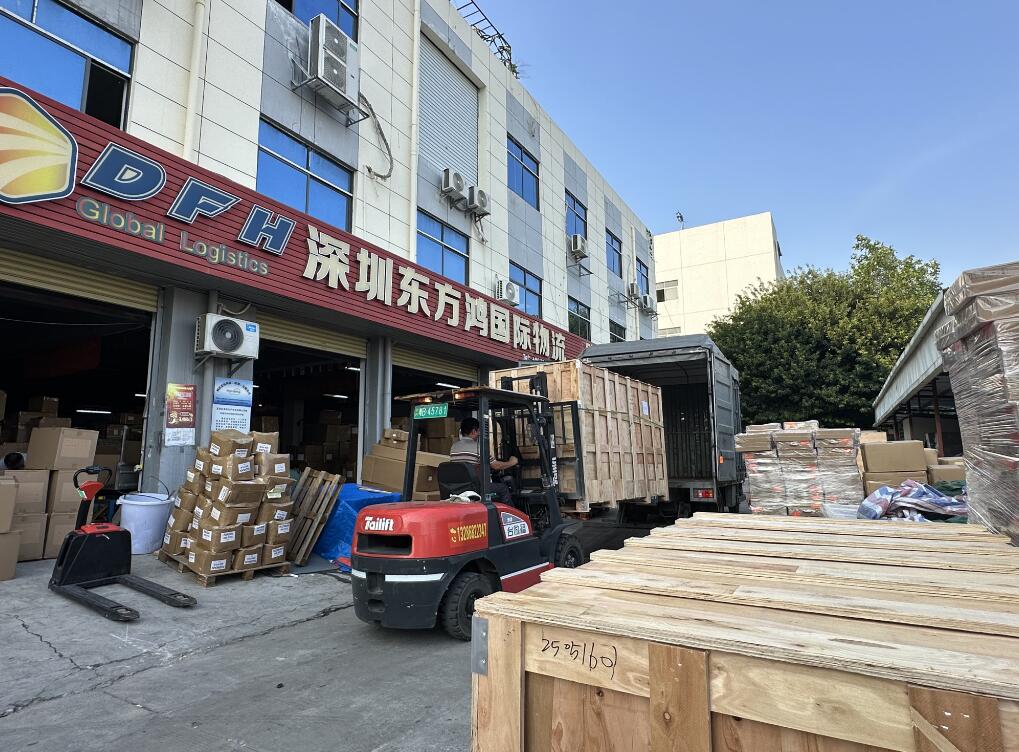
At DFH Logistics, we specialize in helping importers—from individuals and startups to wholesalers and e-commerce sellers—ship goods from Alibaba to the UK smoothly, affordably, and with full compliance.
With over 12 years of hands-on experience, we manage the entire logistics process so you can focus on growing your business, not worrying about shipping problems.
Here’s how we support your shipments:
Factory pickup and supplier coordination
We communicate with your Alibaba supplier to arrange pickup, check documentation, and ensure the goods are ready for export.Consolidation from multiple suppliers
Free 30-day warehousing in our Shenzhen facility allows you to combine products from different vendors into one shipment—saving space and cost.Labeling, repacking, and inspection
We offer professional repacking, labeling (FNSKU, carton ID, etc.), and photo or video inspections before shipment—ideal for Amazon sellers or quality control.Flexible shipping methods
Whether you need DDP air, DDP sea, LCL, FCL, or express, we provide tailored options based on your cargo size, urgency, and budget.Customs clearance and VAT/duty handling
Our DDP solutions cover import VAT, duty payments, and customs declarations, even if you don’t have an EORI or VAT number.Final-mile delivery across the UK
We deliver directly to your home, warehouse, 3PL center, or Amazon FBA warehouse—including booking delivery appointments when needed.
Why choose DFH over default Alibaba shipping?
| Feature | Alibaba Supplier Shipping | DFH Logistics |
|---|---|---|
| Transparent Pricing | Rare | Always |
| Custom Clearance Support | Limited or none | Full service |
| DDP Availability | Not guaranteed | Always offered |
| Consolidation Service | Not available | Free 30 days |
| UK Delivery Coordination | Basic | Amazon/FBA ready |
| English-Speaking Support | Varies | Native level |
Whether you’re ordering a single shipment or scaling regular deliveries, our team offers real solutions—not generic promises.
Case studies: Real UK clients shipping from Alibaba with DFH
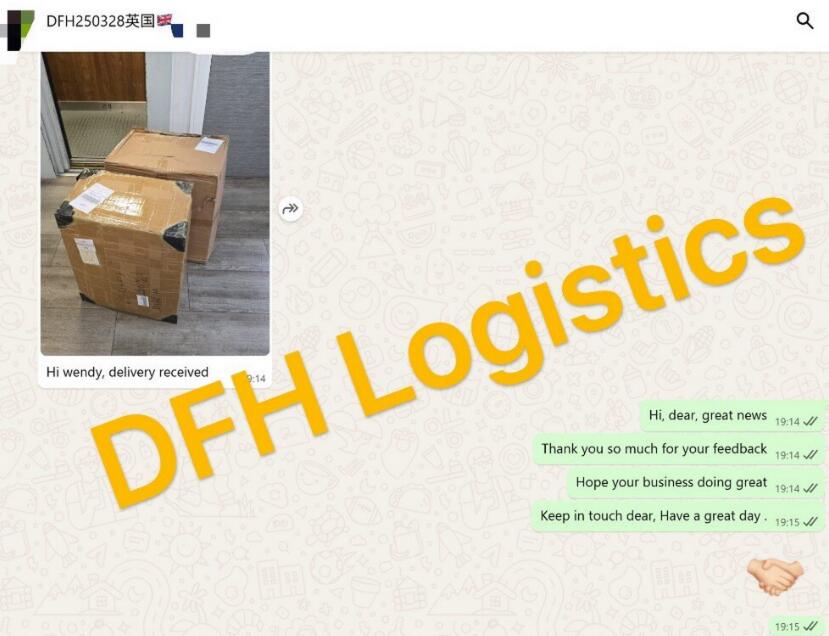
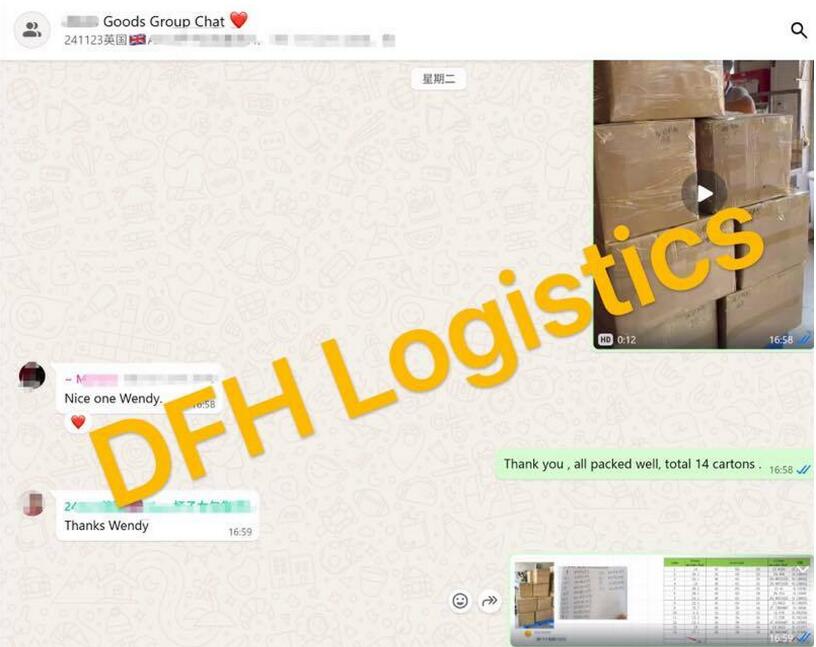
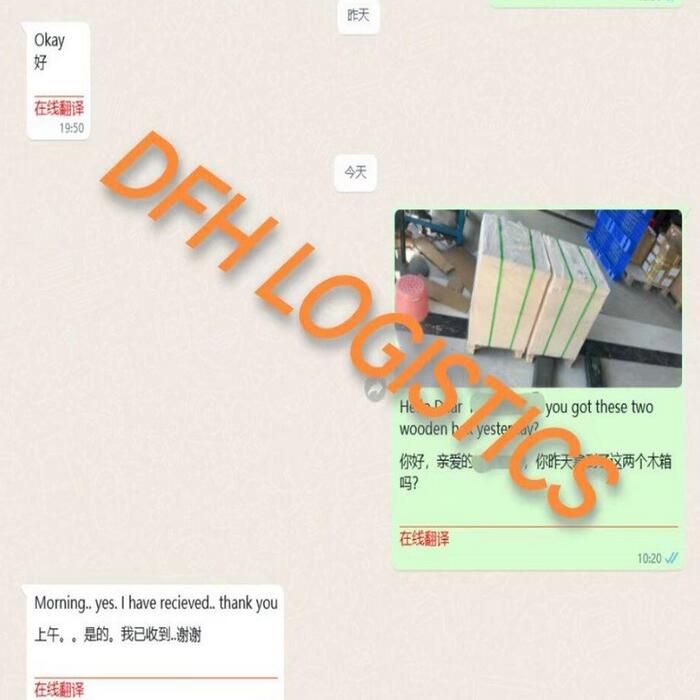
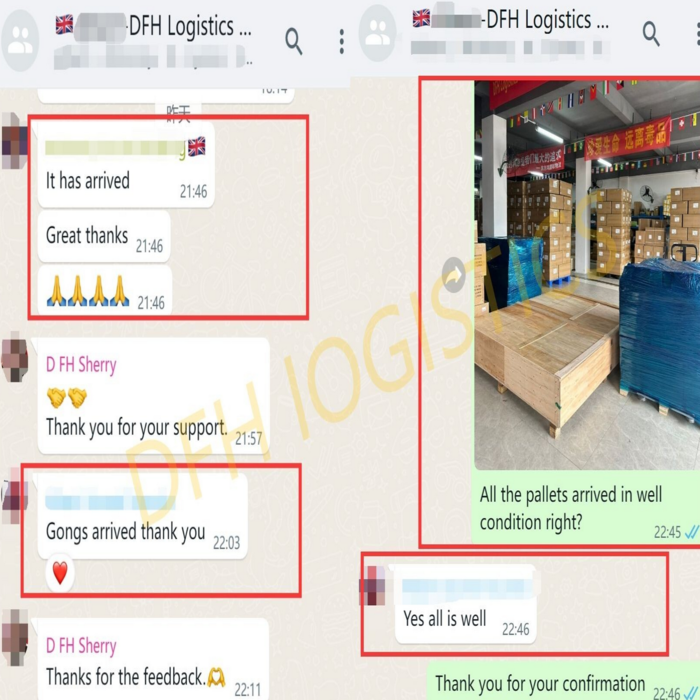
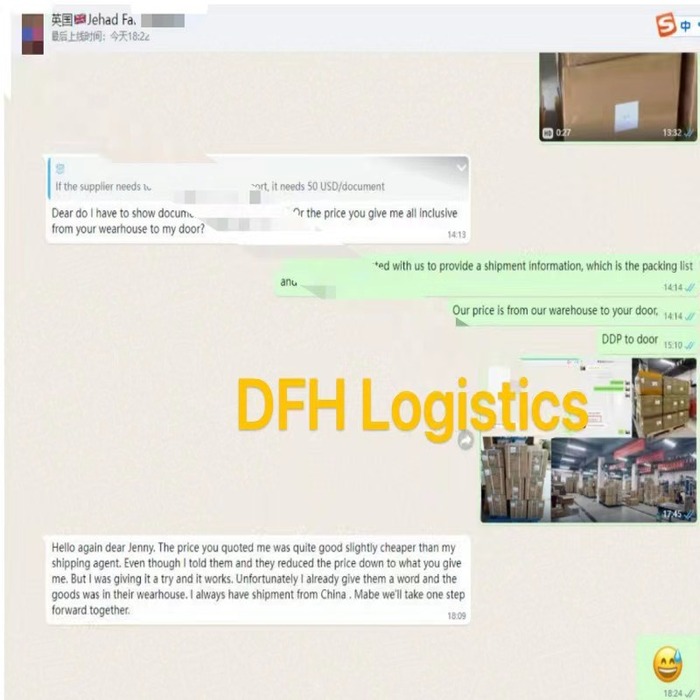
These are just a few of the hundreds of shipments we handle for UK clients every month. Whether it’s a single parcel or an entire container, our team is here to make shipping from Alibaba to the UK simple, compliant, and affordable.
Conclusion: What’s the best way to ship from Alibaba to the UK?
Shipping from Alibaba to the UK doesn’t have to be complicated—but choosing the wrong logistics approach can lead to delays, extra costs, or even customs rejection.
Whether you’re a personal buyer, new importer, or experienced seller, the best shipping method depends on your cargo type, delivery timeline, and import status.
Here’s a quick recap:
- Use express shipping for urgent, lightweight packages (under 20 kg)
- Use air freight for mid-size cargo that needs fast but cost-effective delivery
- Use sea freight LCL or FCL for large, bulky, or non-urgent goods
- Choose DDP shipping if you want door-to-door service without handling customs or VAT
- Always use a professional freight forwarder if your supplier lacks experience or you’re shipping to Amazon FBA
At DFH Logistics, we’ve helped thousands of UK-based importers streamline their Alibaba shipments with custom solutions, end-to-end support, and all-inclusive pricing. Whether you’re just getting started or scaling up, we’re ready to help you succeed.
Ready to ship from Alibaba to the UK?
Contact DFH Logistics for a free shipping quote, and let our expert team help you choose the safest, fastest, and most affordable way to get your products delivered.
Let DFH handle the logistics, so you can focus on growing your business.

